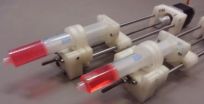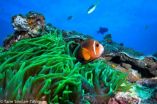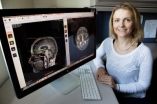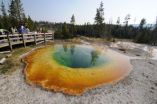(Press-News.org) Furnishing a research lab can be pretty expensive. Now a team led by an engineer at Michigan Technological University has published an open-source library of designs that will let scientists slash the cost of one commonly used piece of equipment: the syringe pump.
Syringe pumps are used to dispatch precise amounts of liquid, as for drug delivery or mixing chemicals in a reaction. They can also cost hundreds or even thousands of dollars.
Joshua Pearce and his team of Michigan Tech students published the library of free syringe-pump designs, which anyone can make on a RepRap 3D printer for the cost of the plastic filament. Better yet, the designs are perfectly customizable.
"Not only have we designed a single syringe pump, we've designed all future syringe pumps," said Pearce. "Scientists can customize the design of a pump for exactly what they are doing, just by changing a couple of numbers in the software."
The library includes recipes for most parts of a syringe pump. You'll have to buy the small electric stepper motor that drives the liquid, some simple hardware and the syringe itself, which is inexpensive.
The team also went a little further, incorporating a low-cost, credit card-sized Raspberry Pi computer as a wireless controller. "That way, you can link the syringe pump to the network, sit on a beach in Hawaii and control your lab," Pearce said. "Plenty of people can have access, and you can run multiple experiments at the same time. Our entire single-pump system costs only $50 and can replace pumps that run between $250 and $2,500."
It costs more to make a double-pump system, about $120, but it replaces a commercial system that costs $5,000.
That said, Pearce believes someone will figure out how to make them better. "The international scientific open-source lab community is growing rapidly. From UC Berkeley's Tekla Lab to Sensorica in Montréal and OpenLabTools at the University of Cambridge, we are all working together to make science cheaper, faster and better. I'm sure someone will improve our designs and share their results with us and the rest of the community. That's the beauty and power of open source," he said.
Megan Frost, a biomedical engineer at Michigan Tech, uses syringe pumps from Pearce's library to introduce agents into cell cultures.
"What's beautiful about what Joshua is doing is that it lets us run three or four experiments in parallel, because we can get the equipment for so much less," she said. "We'd always wanted to run experiments concurrently, but we couldn't because the syringe pumps cost so much. This has really opened doors for us."
The work is described in the paper "Open-source Syringe Pump Library," published in PLOS ONE and coauthored by Pearce, graduate student Bas Wijnen, research scientist Gerald Anzalone and undergraduate Emily Hunt.
INFORMATION:
The article is expected to be available here, http://dx.plos.org/10.1371/journal.pone.0107216 , as of 2 p.m. Sept. 17. The hardware plans, designs, and source code for the pumps is available for free at http://www.appropedia.org/Open-source_syringe_pump .
Pearce is an associate professor with appointments in both the Department of Materials Science and Engineering and the Department of Electrical and Computer Engineering at Michigan Tech.
Doing science just got cheaper -- and faster
3-D printing leads to another advance in make-it-yourself lab equipment
2014-09-17
ELSE PRESS RELEASES FROM THIS DATE:
The future of global agriculture may include new land, fewer harvests
2014-09-17
Climate change may expand suitable cropland, particularly in the Northern high latitudes, but tropical regions may becoming decreasingly suitable, according to a study published September 17, 2014 in the open-access journal PLOS ONE by Florian Zabel from Ludwig Maximilians University, Germany and colleagues.
Most of the Earth's accessible agricultural land are already under cultivation. Ecological factors such as climate, soil quality, water supply and topography determine the suitability of land for agriculture. Climate change may impact global agriculture, but some ...
Nemo's epic journey to find a new home
2014-09-17
New research has found clownfish larvae can swim up to 400 kilometres in search of a home, which makes them better able to cope with environmental change.
Clownfish spend their entire adult lives under the protection of their host anemone but as babies they must wander the open ocean, says study co-author, Dr Hugo Harrison from the ARC Centre of Excellence for Coral Reef Studies (Coral CoE) at James Cook University.
"In the past we haven't known where they go, but now we've been given a rare glimpse into how far they can swim, crossing large tracts of ocean to find ...
Blood test could identify when cancer treatment has become detrimental
2014-09-17
Some treatments for prostate cancer, while initially effective at controlling the disease, not only stop working over time but actually start driving tumour growth, a major new study shows.
Researchers identified the emergence of drug-resistant cancer cells by testing repeated blood samples from patients with advanced prostate cancer.
They set out a new 'treatment paradigm' – the constant monitoring of patients using a blood test for signs that therapy is becoming counter-productive.
The study was conducted at The Institute of Cancer Research, London, The Royal Marsden ...
Expedition finds Nemo can travel great distances to connect populations
2014-09-17
Clownfish spend their entire lives nestling in the protective tentacles of host anemones, but new research shows that as babies they sometimes travel hundreds of kilometres across the open ocean. Although the process of long-distance dispersal by reef fish has been predicted, this is the first time that the high level exchange of offspring between distant populations has been observed.
Dr Steve Simpson, Senior Lecturer in Marine Biology and Global Change at the University of Exeter, and colleagues from the Australian Research Council Centre of Excellence for Coral Reef ...
Study links physical activity in older adults to brain white-matter integrity
2014-09-17
CHAMPAIGN, Ill. — Like everything else in the body, the white-matter fibers that allow communication between brain regions also decline with age. In a new study, researchers found a strong association between the structural integrity of these white-matter tracts and an older person's level of daily activity – not just the degree to which the person engaged in moderate or vigorous exercise, but also whether he or she was sedentary the rest of the time.
The study, reported in the journal PLOS ONE, tracked physical activity in 88 healthy but "low-fit" participants aged 60 ...
Targeted radiation, drug therapy combo less toxic for recurrent head, neck cancers
2014-09-17
SAN FRANCISCO, Sept. 17, 2014 – Patients with a recurrence of head and neck cancer who have previously received radiation treatment can be treated more quickly, safely and with fewer side effects with high doses of targeted radiation known as Stereotactic Body Radiation Therapy (SBRT) in combination with a drug that also carefully targets cancerous tumors. These findings from a UPMC CancerCenter study were presented today at the American Society of Radiation Oncology (ASTRO) annual meeting in San Francisco.
SBRT uses concentrated radiation beams in high doses to destroy ...
Nature's designs inspire research into new light-based technologies
2014-09-17
BELLINGHAM, Washington, USA -- "Nature has developed, very cleverly, some lessons on how to create the features that we desire in optical design," said Joseph Shaw, director of the Optical Technology Center at Montana State University. "As we explore surfaces and structures at the nanoscale, we'll discover them."
Some of those lessons were presented in San Diego in August during a conference called "The Nature of Light: Light in Nature" chaired by Shaw and Rongguang Liang of the University of Arizona College of Optical Sciences. The conference was part of SPIE Optics ...
In Joslin trial, Asian Americans lower insulin resistance on traditional diet
2014-09-17
BOSTON – September 17, 2014 – Why are Asian Americans at higher risk of developing type 2 diabetes than Caucasian Americans, and prone to develop the disease at lower body weights? One part of this puzzle may lie in the transition from traditional high-fiber, low-fat Asian diets to current westernized diets, which may pose extra risks for those of Asian heritage, says George King, M.D., Senior Vice President and Chief Scientific Officer at Joslin Diabetes Center and the senior author of the study.
A Joslin randomized clinical trial now has demonstrated that both Asian ...
Fighting parents hurt children's ability to recognize and regulate emotions
2014-09-17
Exposure to verbal and physical aggression between parents may hurt a child's ability to identify and control emotions, according to a longitudinal study led by NYU's Steinhardt School of Culture, Education, and Human Development.
The findings, which appear in the journal Development and Psychopathology, also suggest that household chaos and prolonged periods of poverty during early childhood may take a substantial toll on the emotional adjustment of young children.
"Our study points to ways in which aggression between parents may powerfully shape children's emotional ...
Persian Gulf states have new role to play in Israeli-Palestinian conflict resolution
2014-09-17
HOUSTON – (Sept. 17, 2014) – The shifting regional geopolitics of the Middle East have created new opportunities for the Persian Gulf states to engage in Arab-Israeli conflict resolution, according to a new paper from Rice University's Baker Institute for Public Policy.
"The Gulf States and Israeli-Palestinian Conflict Resolution," authored by Kristian Coates Ulrichsen, proposes a set of policy recommendations on how the Gulf states can engage with regional and international partners to create new pathways for action and cooperation. Ulrichsen is the fellow for the Middle ...
LAST 30 PRESS RELEASES:
Bacteria frozen in ancient underground ice cave found to be resistant against 10 modern antibiotics
Rhododendron-derived drugs now made by bacteria
Admissions for child maltreatment decreased during first phase of COVID-19 pandemic, but ICU admissions increased later
Power in motion: transforming energy harvesting with gyroscopes
Ketamine high NOT related to treatment success for people with alcohol problems, study finds
1 in 6 Medicare beneficiaries depend on telehealth for key medical care
Maps can encourage home radon testing in the right settings
Exploring the link between hearing loss and cognitive decline
Machine learning tool can predict serious transplant complications months earlier
Prevalence of over-the-counter and prescription medication use in the US
US child mental health care need, unmet needs, and difficulty accessing services
Incidental rotator cuff abnormalities on magnetic resonance imaging
Sensing local fibers in pancreatic tumors, cancer cells ‘choose’ to either grow or tolerate treatment
Barriers to mental health care leave many children behind, new data cautions
Cancer and inflammation: immunologic interplay, translational advances, and clinical strategies
Bioactive polyphenolic compounds and in vitro anti-degenerative property-based pharmacological propensities of some promising germplasms of Amaranthus hypochondriacus L.
AI-powered companionship: PolyU interfaculty scholar harnesses music and empathetic speech in robots to combat loneliness
Antarctica sits above Earth’s strongest “gravity hole.” Now we know how it got that way
Haircare products made with botanicals protects strands, adds shine
Enhanced pulmonary nodule detection and classification using artificial intelligence on LIDC-IDRI data
Using NBA, study finds that pay differences among top performers can erode cooperation
Korea University, Stanford University, and IESGA launch Water Sustainability Index to combat ESG greenwashing
Molecular glue discovery: large scale instead of lucky strike
Insulin resistance predictor highlights cancer connection
Explaining next-generation solar cells
Slippery ions create a smoother path to blue energy
Magnetic resonance imaging opens the door to better treatments for underdiagnosed atypical Parkinsonisms
National poll finds gaps in community preparedness for teen cardiac emergencies
One strategy to block both drug-resistant bacteria and influenza: new broad-spectrum infection prevention approach validated
Survey: 3 in 4 skip physical therapy homework, stunting progress
[Press-News.org] Doing science just got cheaper -- and faster3-D printing leads to another advance in make-it-yourself lab equipment




